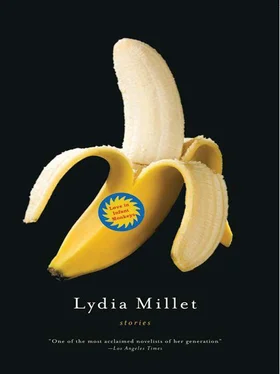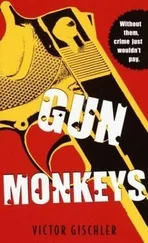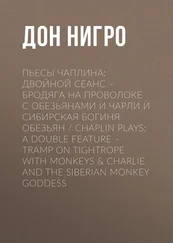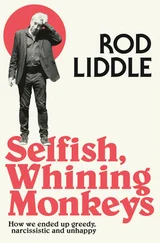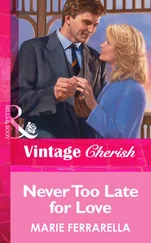“OK,” said the violinist, and attempted to smile again. “I’ll try not to kick the bucket before then.”
“I would take her,” explained the attendant, apologetic. “But I just can’t.”
She handed back the leash and Blackie jumped off the lap.
“We’ll see you back at the apartment,” called the attendant after him.
They had more than half an hour left on the circuit. As the dogs trotted in front of him, he saw Sir Henry turn back to the violinist, checking up on him.
If he accepted the dog, in a clear violation of established protocol, would his principles erode? Would he end up an eccentric with an apartment full of abandoned pets? By preferring dogs to humans he put himself at risk — myopia on the part of his fellow citizens of course, since dogs were so clearly their moral superiors. Still, he did not wish to be stigmatized.
As they neared the 72nd Street entrance he saw children approaching, delighted. Children were a matter of policy also. He allowed only quiet ones to touch his charges, and he preferred the females. Males made sudden movements, capered foolishly and often taunted.
He stopped now, for these were two melancholy slips of girls with round eyes.
“May I pet him, please?” asked one of them, and suspended a hand in the air over Sir Henry’s head.
Sir Henry welcomed it. Girls reminded him of the entertainer’s daughters, the dogwalker thought, two blond girls who had caressed him constantly when he was only three months old but now seemed unaware of his existence.
Himself, he was preoccupied; this was a critical decision. His mind wandered as the girls leaned down. He gazed in their direction but he did not see them clearly — bent pink forms with sunlight on wavy hair. . if he owned the poodle himself he could walk the dogs like this every day, the dachshund and Blackie. Sir Henry was most contented in the poodle’s presence.
“You get away ,” said a woman harshly to the girls. She wore tight leather pants and held a phone to her ear. “They could bite. They’re dirty.”
“They are cleaner than you are,” said the dogwalker softly. “And they never bite nice little girls. Only mean old witches.”
“Right now ,” snapped the woman.
“Thanks, mister,” said the elder girl, and looked with longing at Sir Henry as the woman tugged at her arm.
He was often grateful that dogs had little use for language; still, they understood tone. The leather-pants woman had slightly offended them, he suspected — a telltale lowering of their heads as they made for the gate. Dogs had an ear for the meaning in voice.
“Oh my God,” said a fat man in front of them on the path, pointing, and laughed. “It’s David Hasselhoff.”
He turned to see the entertainer advancing, talking into his telephone and wearing what appeared to be gaudy jogging attire, a jacket with purple details that matched purple pants. No doubt he was on his way home from the gym.
Never before had the dogwalker run into two owners on a single walk.
“Yeah. Yeah,” said David Hasselhoff on the phone. “Yeah. Yeah. Yeah.” As he passed them he winked at the dogwalker, then swooped down, not stopping, to chuck Sir Henry on the chin. “Hey there, little buddy.”
The dogwalker watched his back receding, ogled by various passersby. With his free hand the entertainer saluted them jauntily.
“The Hoff ,” said one, smirking.
“They love him in Germany,” said another.
The dogwalker recalled hearing people on the sidewalk discuss the violinist also. “He did a recording for Deutsche Grammophon, the Tchaikovsky Concerto in D , that actually broke my heart.” It was rare that he considered the lives of owners beyond their animals. To him they were dog neglecters most of all. And yet where would he be without this neglect?
The violinist, of course, could not be blamed in the least. He had insisted on walking Blackie himself when he was submitting to a barrage of chemotherapy that would have felled lesser men. The dogwalker respected the violinist, though it was unpleasant to see him in his wretchedness. A dog in his state would have been euthanized long ago.
In fact that was how he had met the violinist; the violinist had not gone through the usual channels. The dogwalker had come upon him struggling to keep up with Blackie on a path near Turtle Pond. Two kids on skateboards had almost run them over, and the old man had begun to tremble violently. His bones were like porcelain. Worse, one of the kids had called Blackie a “faggot dog” as he swooped away on his board. (At that time the poodle had sported an unfortunate Continental Clip with Hip Rosettes. Later, the dogwalker had persuaded the violinist to switch to a basic Lamb.)
But the skateboarder had infuriated him. Not the words, but what was behind them — malice directed at the dog. A senseless meanness of spirit. The poodle had never done anything to hurt the kid.
He had guided the frail old man to a ledge where he could sit, and from then on the poodle had been one of his charges.
He imagined telling the violinist he could not take Blackie. In his mind he went over the conversation as he stood with the dogs. They were waiting for a walk signal.
“I am sorry,” he would say. “But if I took in all the dogs, even all the dogs I like best, I would be a pet shelter, not a dogwalker.”
The violinist would gaze at him sadly with his watery blue eyes. In his youth, the attendant had said once, the violinist had been quite handsome, and she’d shown him a black-and-white photograph. The violinist had survived a death camp, Stalin. Now his skin was like paper, his teeth yellow.
“Can’t you make an exception?” the violinist might ask.
“I would like nothing more than to take Blackie in,” he could say. “But all I can do is help find a new family for him. Allow me to do that, at least.”
What bothered him was that the violinist had been so good to his dog. Such goodness should be rewarded.
If he did not take the poodle, chances were he would never see him again, once the violinist was out of the picture. The poodle would live out the rest of his days with someone who did not care for him as the violinist had. Blackie would be brokenhearted and Sir Henry would be bereft.
Of course even he, the dogwalker, could not promise to bestow upon the poodle the violinist’s brand of solitary, desperate cherishing. But with him at least the poodle would be assured of a dignified life, a steady stream of affection.
At his feet the poodle looked up at him.
“I should be talking to you about this,” said the dogwalker. “It’s not right, is it? You don’t have a say in the matter at all.”
No, he did not. Dogs were the martyrs of the human race.
The light turned and the three of them stepped into the crosswalk. Forward. The brightness of the day was upon them. . he was lucky, he thought, with a sudden soar of hope. Here he was with his two favorite dogs, walking them at a perfect pace for all three. Neatly they jumped up onto the curb. They did not pull him and he did not pull them. Could you go forward forever, with your dogs at your side? What if he just kept going? Across the city, over the bridge, walking perfectly until darkness fell over the country. Sometimes he wished he could gather all the dogs he loved most and walk off the end of the world with them.
When a dog was put to sleep its chin simply dropped softly onto its paws. It looked up at you with the same trusting eyes it had fixed on you since it was very young.
At the violinist’s building he nodded at the door-man. There was a noisy crowd in the elevator, a birthday party of children with conical hats and clownish face paint. He let them cluster and hug the dogs; the dogs licked them.
Читать дальше
